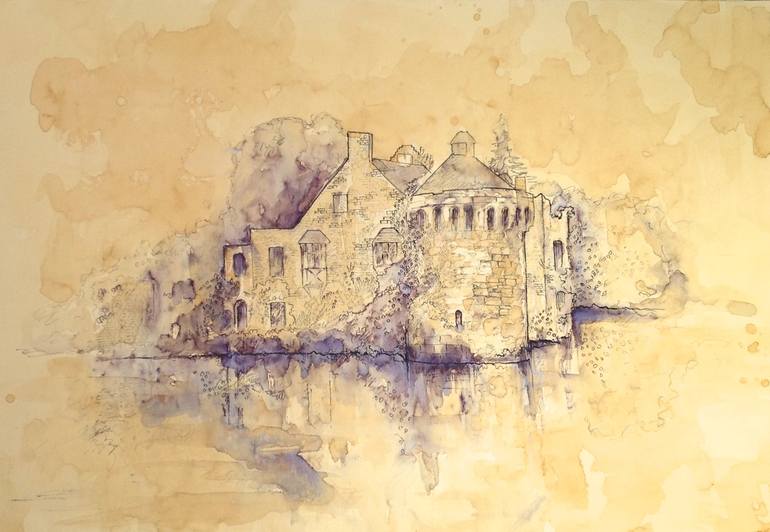


187 Views
0
View In My Room
Painting, Other on Paper
Size: 31.9 W x 22 H x 0.2 D in
Ships in a Box
187 Views
0
ABOUT THE ARTWORK
DETAILS AND DIMENSIONS
SHIPPING AND RETURNS
This is the ninth of a series of studies I did of Scotney Castle after being asked to participate in SkyArt's “Landscape Artist of the Year”. Eight contestants per episode were asked to depict an undisclosed view of the castle within four hours. This is a view of the southern side of the castle. It ...
Year Created:
2016
Subject:
Mediums:
Painting, Other on Paper
Rarity:
One-of-a-kind Artwork
Size:
31.9 W x 22 H x 0.2 D in
Ready to Hang:
Not Applicable
Frame:
Not Framed
Authenticity:
Certificate is Included
Packaging:
Ships in a Box
Delivery Cost:
Shipping is included in price.
Delivery Time:
Typically 5-7 business days for domestic shipments, 10-14 business days for international shipments.
Returns:
Free returns within 14 days of delivery. Visit our help section for more information.
Handling:
Ships in a box. Artists are responsible for packaging and adhering to Saatchi Art’s packaging guidelines.
Ships From:
United Kingdom.
Customs:
Shipments from United Kingdom may experience delays due to country's regulations for exporting valuable artworks.
Need more information?
Need more information?
Ann Mackowski
United Kingdom
Why Saatchi Art?
Thousands of
5-Star Reviews
We deliver world-class customer service to all of our art buyers.
Global Selection of Original Art
Explore an unparalleled artwork selection from around the world.
Satisfaction Guaranteed
Our 14-day satisfaction guarantee allows you to buy with confidence.
Support Emerging Artists
We pay our artists more on every sale than other galleries.
